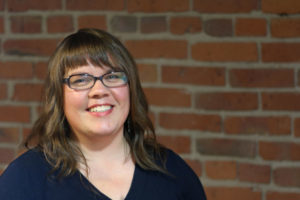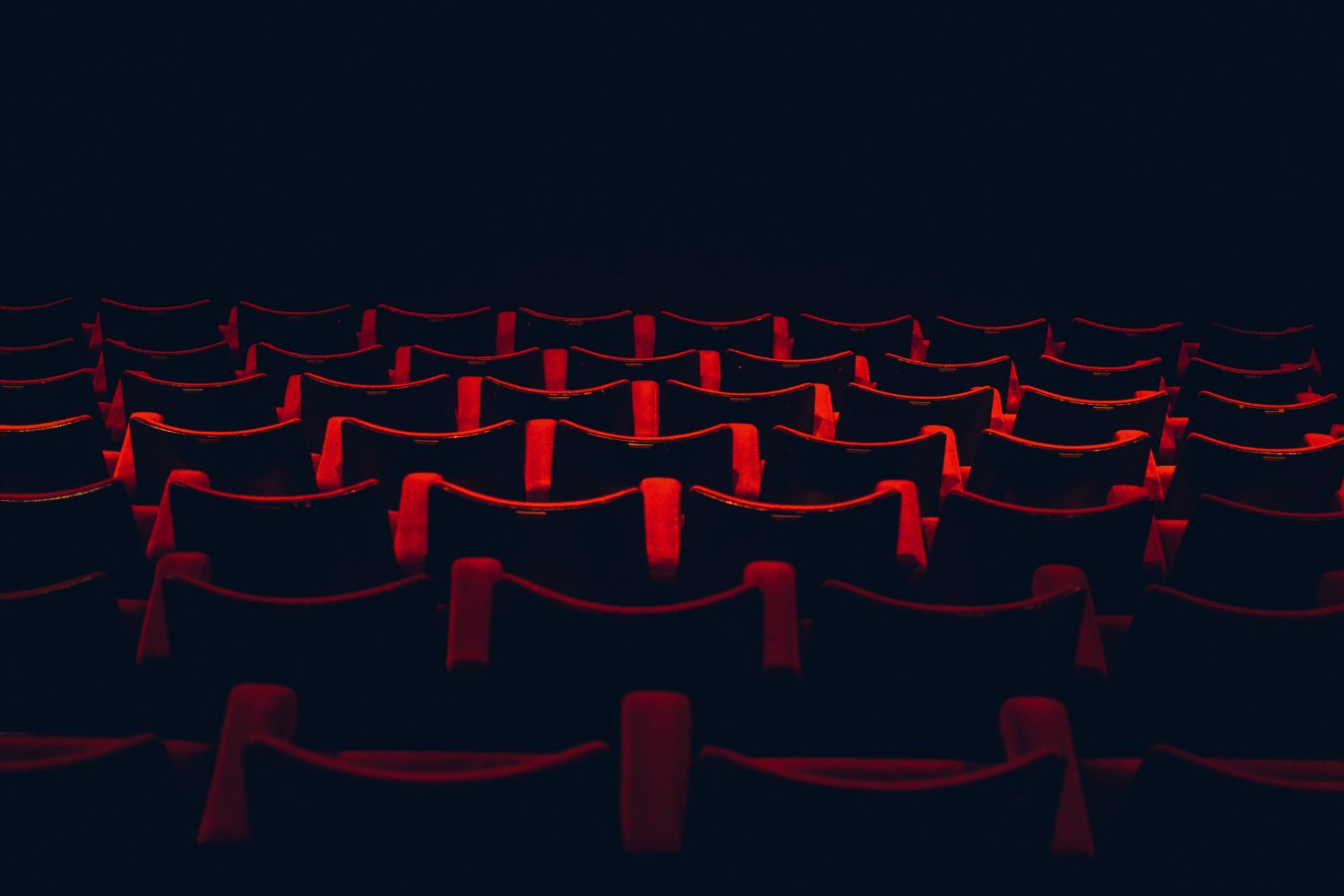In the Spring 2017 term, The Seattle School will offer Spirituality and the Arts (SFD 523), a two-credit elective that is available every two years. Each course offering so far has engaged a different art form, and this year’s focus, taught by Kj Swanson (MDiv, 2010), is the art of film. Before the recent completion of her doctoral studies at the University of St. Andrews in Scotland, Kj received her Master of Divinity at The Seattle School, where she now works as Adjunct Professor of Theology & Culture and Assistant Instructor Supervisor. Here, we talk with Kj about the new class, the cultural power of moviegoing, and why she was excited to return to The Seattle School.
Before we dive in and talk about this class, can you tell us a bit about your history with The Seattle School?
I started here working on the two-year degree—what used to be the MA in Christian Studies and is now the MA in Theology & Culture. My whole background and training was in theater and dramaturgy, but through classes like Reading Practices and Old Testament, it was a slippery slope into taking Biblical Greek and Hebrew, and realizing that academia was where I could be most creative. My dream of doing a Ph.D. and working in higher education doing interdisciplinary theology was born out of this place. After graduating, my two years as an Assistant Instructor were kind of a testing ground to see if I actually want to do that for my career, and it felt like roller skating—it felt so right and good, like all parts of me were firing on all cylinders.
 Now, after four years in Scotland, what’s it like being back in Seattle?
Now, after four years in Scotland, what’s it like being back in Seattle?
Living in St. Andrews and Edinburgh, which are both very international and historical places, it really reframed a lot, helping me see my American identity in a new way. I lived through the Scottish referendum, the Brexit vote, and now I am very thankful to be back in North America. It’s been quite difficult being across an ocean with what’s happening in this country.
Moving to Scotland, I very much felt sent by The Seattle School to do the Ph.D. In a spiritual sense, I felt like there was a community sending me forward to my next step. And I never stopped wanting to come back—nothing sounded better than coming back to Seattle. In terms of an academic institution, I can’t think of any place where the ethos, the values, the leadership, our vision for what we want to put in the world, how we want to be changed by our students—I don’t see anywhere else like that. The Seattle School is my benchmark for what a school could be.
This year you’ve been teaching the Writing Workshop and supervising the Assistant Instructors. Then there’s this class, Spirituality and the Arts, coming in the Spring. What’s it all about?
This class, taught every other year, is a continually evolving elective as our school’s engagement with different aspects of spirituality and culture continues to shape. In the previous two versions we had adjuncts who had different theological and artistic backgrounds—one year it was literature, one year it was iconography. There are a lot of outstanding, creative electives about spirituality and the arts this spring, and I needed to find an anchor. Through the process of research, film just kept popping up as I realized, where do I do much of my meaning-making? Where have I heard God in a very clear way? Where could I hit the ground running?
In terms of thinking about meaning-making through art, it’s far more likely that a lot of us have films that have journeyed with us since childhood and have changed as we’ve grown. We can be film literate at a very early age, even before we can be book literate, in a way that we might not be able to with other art forms.
The goal is not a theologically concept-heavy class. It will be more experiential, a class for movie lovers. In many ways it’s about the spirituality of movie watching more than it is the spirituality of movies. So if students are curious about how much they need to know about film, I’d say nothing. If you enjoy watching movies, this might be an interesting entry point for engaging a practice you are already engaged in but might not have considered from a spiritual formation perspective.
How will the class be structured?
Students will watch about a movie a week outside of class, and that’s part of the reading. I really want students to sit down and watch on as big a screen as possible. This should not be catching 30 minutes here and there on your tablet. The library staff is hoping to offer on-campus screenings, and I’m trying to make use of our amazing film library here at The Seattle School. I don’t know if people realize what a masterful gift we have in Mary Rainwater. Our library’s got film game, big time.
The main spiritual focus of the course is going to be around general revelation: what do we know, what do we say, what can we identify about how God reveals Godself beyond church and tradition and Scripture? I think it comes up in quite a few of our courses, the concept that it is not just through reading the Bible, or hearing a sermon, or taking the Eucharist that the presence of God and the spirit of God speak. From a personal standpoint, often a movie theater has historically been a sacred space for me—far more than most church experiences I’ve had. What happens if we don’t ignore that or treat it as a one-time thing? If that is a way God chooses to speak to us, how might we listen better if we acknowledge it? The hope of the class is to think through how we are being spiritually formed all the time. What I’m presenting isn’t new, it’s something we hear a lot here. This is a particular way to think about it.

